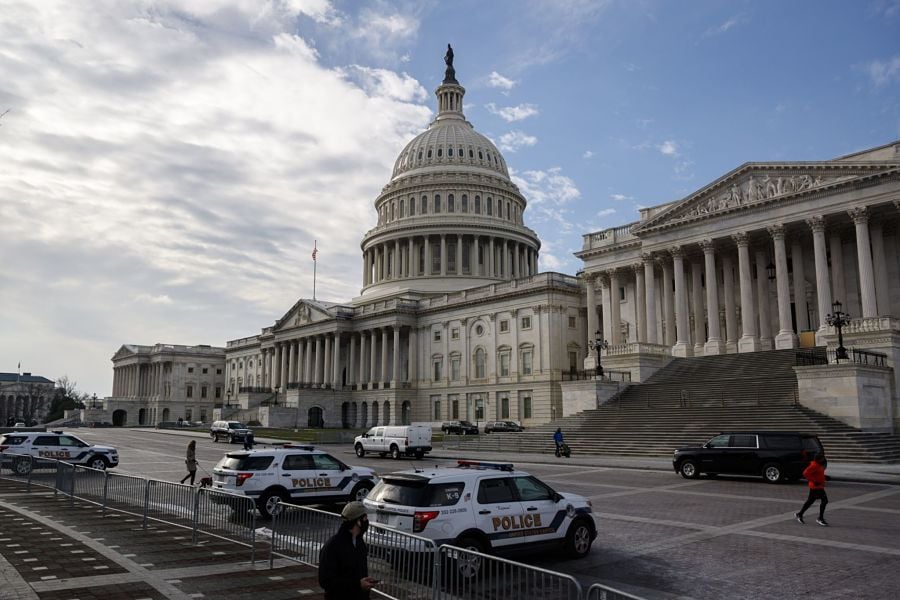

Most Democrats at a House hearing Wednesday expressed support for a Department of Labor investment advice rule proposal that has come under fierce attack from Republicans and financial industry opponents.
The proposed regulation – the retirement security rule – would expand the definition of fiduciary under federal retirement law and impose that standard on most financial advisors and insurance professionals who make recommendations to company retirement plans and plan participants and to investors in individual retirement accounts.
The measure, which was introduced in October and generated 19,000 comment letters, has drawn strong praise and criticism – both of which were expressed at the hearing of the House Financial Services Subcommittee on Capital Markets.
Earlier this week, 50 lawmakers, including five Democrats, sent a letter to the DOL demanding that the agency withdraw the proposal. Echoing industry arguments, they asserted the measure would significantly increase regulatory costs for financial firms and boost the price of advice, making it unaffordable for low- and middle-income workers.
The top Democrat on the subcommittee was much more sympathetic toward the rule, which the Biden administration has promoted as a way to combat "junk fees" that arise from financial advisors' conflicts of interest.
“The regulation before us has those who hate it [and] those who love it,” said Rep. Brad Sherman, D-Calif. and ranking member of the subcommittee. “Put me in between. The fact is that we need to improve this regulation. But, I think, ultimately, we need a regulation in this space.”
Sherman said the regulation would be better if it codified that certain conversations between advisors and investors – such as ones in which an advisor is selling her services – do not entail fiduciary requirements.
Like the DOL, Sherman said the regulation is needed because it applies to non-securities, such as some insurance products and commodities, that are not covered by Regulation Best Interest. He also praised the proposal for imposing a fiduciary standard on one-time rollover recommendations.
“We ought to require the best interests of the investor to be protected and we’ve got some loopholes to fill,” Sherman said.
Later in the hearing, Rep. Sean Casten, D-Ill., also highlighted rollovers as an area where current DOL regulations need to be strengthened.
“There is some updating that needs to be done,” Casten said.
The only Democrat at the hearing to fully reject the DOL proposal was Rep. David Scott, D-Ga., who signed Monday’s letter.
The witness table was dominated by the financial and insurance industries, with officials from the Insured Retirement Institute, the American Council of Life Insurers and Finseca, along with a former Bush administration DOL official, Brad Campbell, testifying against the DOL proposal. The lone witness in favor was Kamila Elliott, an investment advisor at Collective Wealth Partners and former chair of the Certified Financial Planner Board of Standards Inc.
The organizations echoed what they said at two days of DOL hearings in December. Opponents said the proposal is unnecessary because of the investor protections provided by Reg BI, the broker conduct standard, and a best-interest standard for annuity sales that has been adopted by 41 states.
The subcommittee chair, Rep. Ann Wagner, R-Mo., gave Jason Berkowitz, chief legal and regulatory affairs officer at the Insured Retirement Institute, a chance to respond to Sherman’s concerns by asking him whether there is any evidence of regulatory gaps.
“We do not believe that there are actual gaps in the regulations that are being exploited to harm retirement savers,” Berkowitz said.
Elliott responded to one of the major industry criticisms of the proposal, that it would make investment advice too expensive for retirement savers with modest assets. She said that her firm does not impose account minimums.
“I am here because moderate-income individuals are the people who most need to make every dollar count,” Elliott said. “If the rule is adopted, moderate-income Americans will gain rather than lose access to retirement advice that is in their best interests.”
But later in the hearing, Rep. Bill Huizenga, R-Mich., challenged Elliott on the cost of fiduciary advice versus transactional fees for investing. He noted that her firm charges $250 per hour for financial planning. He also asserted that, in his experience, a financial plan could cost upwards of $4,500.
“I got people in the 4th Congressional District that are coming in with $4,500, not having to pay someone $4,500 to go get expert advice,” Huizenga said. "This rule is going to take options away from people.”
The industry witnesses tried not to come across as being anti-fiduciary.
“We support a best-interest standard. We support a fiduciary standard,” said ACLI CEO Susan Neely. “What we don’t support is a fiduciary-only standard.”
When Casten asked Neely whether the proposal could be improved to address her concerns, she said there was no hope for the measure.
“The current proposal from the DOL is so expansive, it needs to be withdrawn,” she said. “It can’t be fixed.”
It’s not clear when the DOL will release a final rule.

Relationships are key to our business but advisors are often slow to engage in specific activities designed to foster them.

Whichever path you go down, act now while you're still in control.

Pro-bitcoin professionals, however, say the cryptocurrency has ushered in change.

“LPL has evolved significantly over the last decade and still wants to scale up,” says one industry executive.

Survey findings from the Nationwide Retirement Institute offers pearls of planning wisdom from 60- to 65-year-olds, as well as insights into concerns.
Streamline your outreach with Aidentified's AI-driven solutions
This season’s market volatility: Positioning for rate relief, income growth and the AI rebound
